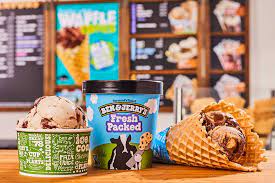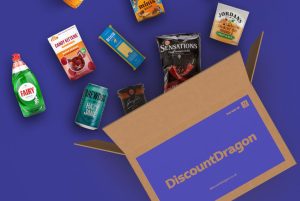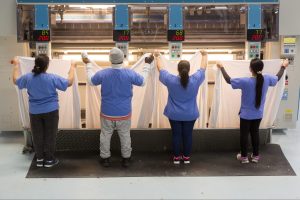Full year declines at Unilever, but new CEO says he’s on the job

Consumer goods giant, Unilever, suffered declines in revenue and profits during 2023.
But chief executive, Hein Schumacher, presenting his first full year’s results since taking the hot seat last summer, said the new-look board is working to address competitiveness issues.
Turnover dropped 0.8% to €59.604bn, while pre-tax profits declined by 9.7% to €9.339bn.
Nutrition and home care both suffered falls in revenues, but personal care enjoyed a 1.4% improvement, at €13.8bn.
The group operates a key home and personal care manufacturing site and research and development facility at Port Sunlight, Wirral.
Unilever said a new €1.5bn share buyback programme will commence in the second quarter of the current financial year.
Announcing the third quarter results last October, Schumacher revealed a boardroom shake-up to implement his action plan.
Today, he reported progress against the Growth Action plan, including:
• New leadership team has embedded the plan across the organisation
• 30 Power Brands (~75% of turnover) accretive to growth and margin, with underlying sales up 8.6%
• Brand and marketing investment up 130bps to 14.3%, focused on 30 Power Brands
• Active portfolio optimisation into premium segments, announced acquisitions of K18 and Yasso and disposals of Elida Beauty, Dollar Shave Club, Suave in North America
Presenting the annual results, he said: “Today’s results show an improving financial performance, with the return to volume growth and margins rebuilding.
“However, our competitiveness remains disappointing and overall performance needs to improve. We are working to address this by improving our execution to unlock Unilever’s full potential.
“In October, we set out a Growth Action Plan focused on three priorities: Delivering higher quality growth, stepping up productivity and simplicity, and adopting a strong performance focus.
“The new leadership team has embedded the action plan at pace. We have increased investment behind our 30 Power Brands, accelerated portfolio transformation, and are driving a sharper performance focus with clear and stretching targets across the whole organisation.”
He added: “We are at the early stages of this work and there is much to do but we are moving with speed and urgency to transform Unilever into a consistently higher performing business.”
The group said it is expecting underlying sales growth (USG) for 2024 to be within its multi-year range of three, to five per cent, with more balance between volume and price.
It anticipates a modest improvement in underlying operating margin for the full year. It said it will deliver this through gross margin expansion, driven by a step-up in productivity and net material inflation back to more normal levels.
Analysts believe the group also has work to do on its environmental image, too. Yesterday evening (February 7) Danni Hewson, head of financial analysis at Manchester investment platform, AJ Bell, said: “Shares in consumer giant Unilever were down ahead of the company’s latest update, which is already drawing attention from environmental protestors.
“With the CMA also digging into the company’s green credentials, the sight of Greenpeace protestors scaling the walls of the company’s headquarters have created the kinds of headlines the business could have done without.
“Many consumers are looking to do their bit and are prepared to pay more for products and packaging that do less harm. Addressing these concerns might not be top of tomorrow’s earnings update, but there will be a lot of attention paid to whether greenwashing concerns are addressed at all.”
In early morning trading, the Unilever share price rose by almost four per cent.
Russ Mould, investment director at AJ Bell, said today (February 8): “A return to volume growth and improved sales margins on a group basis would suggest Unilever is getting back in the groove. However, the journey still has some way to go as there are pockets of weakness which it needs to resolve.

Russ Mould
“Big brand companies like Unilever have faced a big test over the past two years. High levels of inflation prompted companies to push up prices as a way of passing on extra costs to the consumer. This could have gone one of two ways – consumers either pay more and continue to buy the products they love, or they trade down to cheaper alternatives.
“On the whole, Unilever has managed to pass on these extra costs without a significant decline in sales volumes. On a more granular basis, some areas have come under pressure from consumers opting for cheaper supermarket own-brand products such as with ice cream, or in the opposite direction as the public buy more super-premium products where Unilever has less of a presence.”
He added: “Trading down will remain a competitive threat for Unilever until interest rates start to fall and consumers feel more confident about their finances.
“One of the benefits of having a broad spectrum of brands is that the diverse portfolio will act as a cushion if a few areas go through a bad patch. However, it is interesting to note comments from chief executive Hein Schumacher that overall performance needs to improve. It shows the new boss is striving for more and that new-found energy needs to resonate across the whole business.
“Unilever has been a bit sleepy in recent years with accusations that it spent more time on ESG matters than it did on trying to drive the core business forward. Schumacher clearly wants to reinvigorate things and he will have his work cut out trying to achieve this goal as Unilever is a big juggernaut that will be hard to accelerate quickly.”








